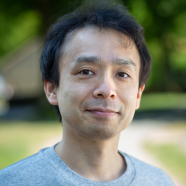
Taro Kitazawa pursued his Ph.D. and M.D. at the University of Tokyo, Japan, receiving his Ph.D. in 2014. During his Ph.D. training, he worked under the mentorship of Hiroki Kurihara, where his research focused on the developmental and genetic bases of evolutionary novelties, specifically relating to vertebrate craniofacial morphogenesis. This undertaking allowed him to acquire extensive knowledge in molecular biology, mouse genetics, developmental biology, and evolutionary biology.
As he neared the completion of his M.D. degree, he decided to further enrich his academic trajectory as a researcher. To that end, he moved to Switzerland in 2015 and joined the Friedrich Miescher Institute for Biomedical Research (FMI) as a postdoctoral researcher. Under the guidance of Filippo M. Rijli, he honed his skills in molecular neuroscience, genomics, epigenetics, and bioinformatics.
At FMI, his research focused on the epigenetic and transcriptional mechanisms regulating neuronal activity-response genes during somatosensory neuron maturation. He discovered a unique epigenetic chromatin signature that governs the immediate early genes (IEGs) in immature sensory neurons. His research demonstrated that this signature critically regulates the rapidity and amplitude of IEGs’ transcriptional response to environmental stimuli, which is essential for the timely activation of IEGs and the molecular programs responsible for neuronal circuit maturation and refinement.
In 2022, he embarked on a new phase in his career as the Group Leader and Associate Professor at the Danish Research Institute of Translational Neuroscience (DANDRITE) Nordic-EMBL and Aarhus University. His research group, funded by the Lundbeck Foundation and an ERC Starting Grant, aims to elucidate the epigenetic and transcriptional basis of neuroplasticity, with a particular emphasis on memory formation processes.
Neuroplasticity underpins the processes of learning and memory formation, fundamental to human cognition. Deficits in neuroplasticity can lead to a range of disorders, including dementia and post-traumatic stress disorder (PTSD). Our lab endeavors to unravel the molecular basis of memory-encoding neuronal ensemble plasticity, particularly through the lens of epigenetic and transcriptional mechanisms. We employ a multidisciplinary approach, leveraging tools from genomics, mouse genetics, circuit analysis, and bioinformatics.
Our research agenda is structured around two core pillars. First, we exploit state-of-the-art genomics sequencing technologies to elucidate the molecular basis of memory-encoding neuronal ensemble formation. By employing gene knock-down/overexpression techniques and optogenetics, we validate our findings drawn from genomic profiles, assessing their functional significance.
Second, we strive to innovate novel high-throughput sequencing technologies, such as whole genome history tracing. These advancements aim to overcome the inherent limitations of existing snapshot-type technologies. The implementation of these advanced methodologies will empower us to address fundamental questions unapproachable with current technologies, affording us deeper insight into the generation of neuronal ensemble heterogeneity.